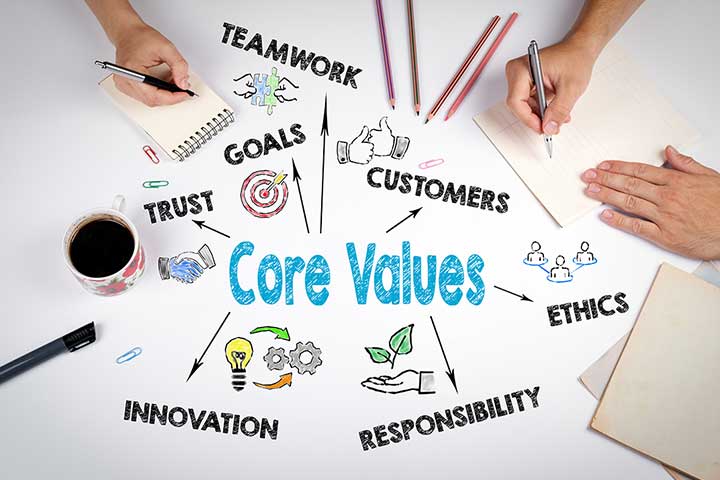This question should be asked more often than it is! If your initial response to the question is “I can’t see how that will affect my logo” you probably need to start asking other questions first.
Building a strong and respected brand reputation is essential to the success of any business and has a direct link to the sales and marketing campaigns you use to promote it. If you are unsure what brand reputation is, it is tied to your company vision and business plan. What are your ethics? What do you stand for? What drives and motivates you to deliver what you do?
Let’s consider an example. If you’re driven by a passion for delivering the highest quality food product in your industry, and you are trading on that reputation but are then discovered to be using low-quality, questionably sourced ingredients, it will undermine your brand and your business. Jamie Oliver had an unfortunate incident at one of his restaurants when eggs from battery hens were found in his kitchen. While it’s not uncommon for people to use battery eggs, it can be quite damaging if you’ve been extremely vocal about food standards and animal rights.
Similarly, if you are going to trade on green credentials, being found to have supported toxic waste dumping will be quite a challenge to overcome, even for the most talented PR consultants. It is also likely to be extremely expensive.
Whilst these are clearly high-profile and more extreme cases, small businesses and organisations should take note. Credibility and reputation are hard-won but very quickly lost, and without your credibility, your business will suffer, sometimes to the point of complete failure.
What you choose to like and share, even on your personal social media, can have a knock-on effect on your business. Choosing to support (or not support a particular event), stocking a particular product or selecting a particular route of advertising can be a detrimental PR blunder.
So, think carefully about what you believe and support, have a benchmark of standards, both as a person and as a business, and then measure each of your decisions carefully against them. You may come across incredible business opportunities or cheaper supply options, but if you are having to compromise on the standards you have built your brand reputation on, you should be asking yourself, “How will this decision affect the reputation of my brand?”
In short, It’s better to accept a short-term setback than to compromise your standards.
If you would like to discuss your brand reputation and management, then get in touch.






